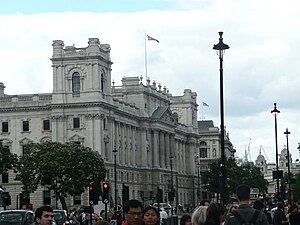Headline Comparisons
Central government current receipts in July were 3.5% higher than in the same month last year, excluding the impact of transfers related to the Asset Purchase Facility. Receipts over the four months April to July were 4.9% higher than in the same months of 2012. The Office for Budget Responsibility's (OBR's) forecast at the time of the March 2013 Budget implied that central government current receipts for the whole of 2013–14 would be 3.0% above 2012–13 levels.
Central government current spending in July was 3.7% higher than in the same month last year. Spending over the four months April to July was 4.3% higher than in the same months of 2012. The OBR's forecast at the time of the March 2013 Budget implied that central government current spending for the whole of 2013–14 would be 2.2% above 2012–13 levels.
Public sector net investment in July was £1.8bn, £0.2 billion more than was spent in July last year. Together, public sector net investment during the first four months of 2013–14 has been £5.6bn. This is 9.3% more than was spent between April and July in 2012, excluding the impact of the transfer of assets from the Royal Mail Pension Plan to the public sector. The OBR's forecast at the time of the March 2013 Budget predicted that net investment over the whole of 2013–14 would be £24.2 billion, which is 7.3% above last year's level excluding the impact of Royal Mail.
Rowena Crawford, a Senior Research Economist at the IFS, said:
"At first sight, today's figures look disappointing. The Treasury ran a deficit in July this year, whereas they normally run a surplus in this month as a significant chunk of corporation tax payments are made in July. But underlying this headline figure is the continuation of two trends that might not - yet - give us cause for concern.
Receipts of taxes on both corporate and personal income have grown more quickly so far this year than forecast by the OBR for the year as a whole. But we should be cautious of inferring too positive a message from this, as income tax payments are likely to be more front-loaded this year than last as people shifted income to take advantage of the new, lower 45p top rate of income tax and receipts of VAT have grown more sluggishly than forecast for the year as a whole.
On the other hand central government current spending has grown more quickly so far than forecast for the year as a whole. But some of this could be merely differences in the timing of payments this year compared to last, and therefore might unwind later on."
 English: Pictogram, for "Internet (World wide web) address", "Home page". Like @ for e-mail (by @+www) Esperanto: Русский: Аналог @ для "www" (пиктограмма строки "Адрес в Интернете"). По мотивам "@" и "www" (гибрид при скрещивании). (Photo credit: Wikipedia)
English: Pictogram, for "Internet (World wide web) address", "Home page". Like @ for e-mail (by @+www) Esperanto: Русский: Аналог @ для "www" (пиктограмма строки "Адрес в Интернете"). По мотивам "@" и "www" (гибрид при скрещивании). (Photo credit: Wikipedia)





















